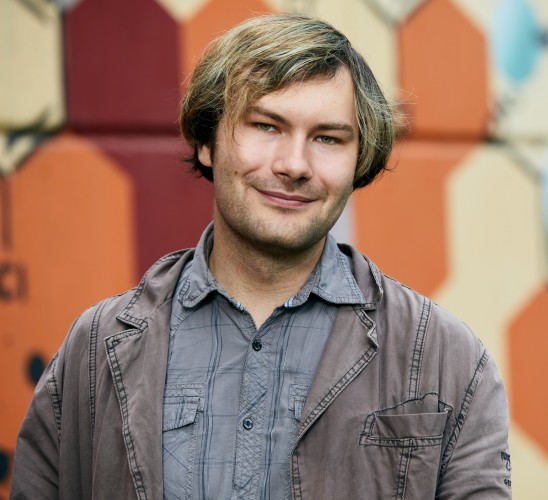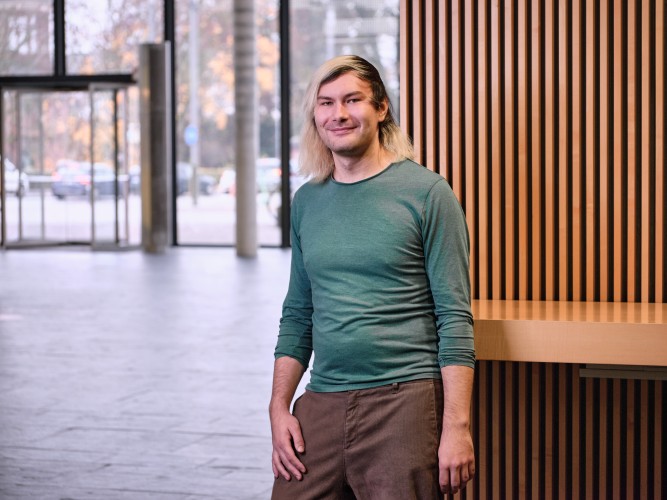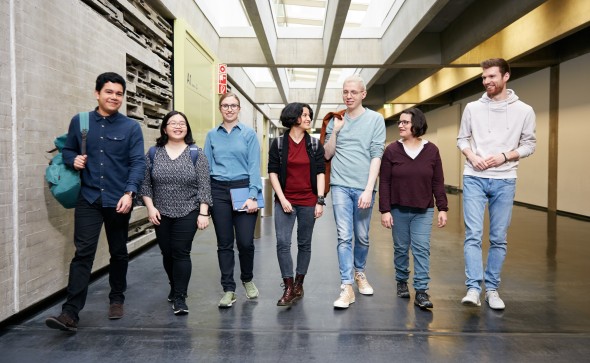Published: 28th January 2022, last edit: 4th July, 2023
Richard,
Biology and Chemistry Teaching at Secondary Schools
During school, I pushed the decision on what I would study in university for a long time. It didn't really start until I was in 11th grade, with the open door events of the universities. But for me, the focus was primarily on getting through high school.

Roadmap for study orientation
What you need to do and by when you need to do it
- One year before deciding to study: Collect interests, skills, strengths and hobbies, for example in a mind map.
- Ask your environment, such as parents, friends, teachers, for their assessment of you, but always question this assessment and compare it with your results – no one can decide for you!
- Take an interest test (for example the study information test SIT from ZEIT) and assess the results.
- Do the suggestions match your ideas? Great, then continue with 4!
- Are the suggestions surprising for you? Then also continue with 4!
- Do the suggestions not fit? Then look at the results critically and think about why this is the case.
- Look for and scribble down suitable study programmes, for example in the Higher Education Compass, read the course descriptionsof the respective university and check the requirements, for example: How high is the math portion in the study programme?
- Take online self-assessments (OSA) and check your own expectations. Does the study programme meet them?
- Get to know study programmes in detail and talk to students, for example in programmes such as “Studi für 1 Tag” or “Leseratten” you can work your way through the so-called module handbooks and find out exactly what the study programme entails.
- And finally: Decide on a course of study. It is important that you set your own criteria. If this is too difficult, you can also attend a decision-making workshop.
- At the same time, always make use of orientation events and fairs such as hobit or TUDay!
Orientation offers of TU Darmstadt for students
At TU Darmstadt there are various orientation and counselling services for students. A good place to start is the Central Student Advisory and Orientation Service, which will help you with advice and support before and during your studies. Here you can find further offers for students for study orientation:
Decision-making workshop: You don't have a plan yet what you want to study or you just can't decide between two or more courses of study? Then the digital decision workshop is just the thing! It's all about your expectations and priorities.
Self-test with the Online Self-Assessment OSA: For all those who already have an idea or would like to check whether their desired course of study is really a possibility, there is our Online Self-Assessment Tool, or OSA for short. Here you can compare your expectations of the course of study, carry out specialist tasks on key topics and learn about your prior knowledge of the course of study, as well as your personal learning behaviour.
Want to get a taste of university life while still at school? No problem!
On Girls' and Boys’ Day, the girls' future day, schoolkids can spend a day visiting the technical, craft and IT areas of TU Darmstadt in particular and gain an insight into their work. Many laboratories and workshops in different departments are open to you and are waiting for curious schoolkids who are interested in STEM subjects! STEM stands for science, technology, engineering, and mathematics.
If you would like to gain a deeper insight into specific degree programmes and talk to students, then the Ein Tag im Studiengang (A day in the degree programme) programme is particularly suitable for you
The junior study programme enables particularly gifted high school students to take part in regular courses and examinations at an early stage, currently also online. After consultation, the course selection can be individually arranged. This way, students can gain initial experience that will facilitate their orientation for later studies, and examinations that are passed can even be recognized for later studies. Further information on the requirements for junior studies is available from the ZSB.
Tips for choosing a degree programme - Here's what you should keep in mind
Here are a few tips and concrete questions that you can answer for yourself and that may help you find the right degree:
- Take enough time and start preparing early. The earlier you start, the less pressured you will feel.
- What do you enjoy? You don't necessarily have to study what you are already particularly good at. You can also acquire specialist knowledge through diligence later. Therefore, it is more important that you are very interested in the subjects, so that you enjoy dealing with the contents of your studies. This is also called intrinsic motivation. Are you ready to move? Unfortunately, some degrees are not available in every city. Therefore, ask yourself if you are willing to move for a degree programme or if you would prefer to study a similar study programme at a certain university. If you like to go abroad: Again, find out about partner universities, dual degree programmes, and other international study opportunities that you can benefit from later.
- Think about criteria that are particularly important to you personally. This will help you compare individual study programmes.
- And if you find it difficult to make a decision, listen to your gut. There is no guarantee that you will make the “right” decision. However, it is important that it feels right for you.
In compiling this list, we were supported by the expertise and experience of the Central Student Advisory and Orientation Office of TU Darmstadt. If you like to make an additional personal appointment, you can easily do so via the online appointment booking tool of the ZSB.

Richard
Hello! My name is Richard and I am studying biology and chemistry to become a teacher at secondary schools. Becoming a teacher is my dream job. By combining my science subjects with sociology, education and psychology, I look at many exciting questions from different perspectives during my studies. I love to support other people in their endeavours.





